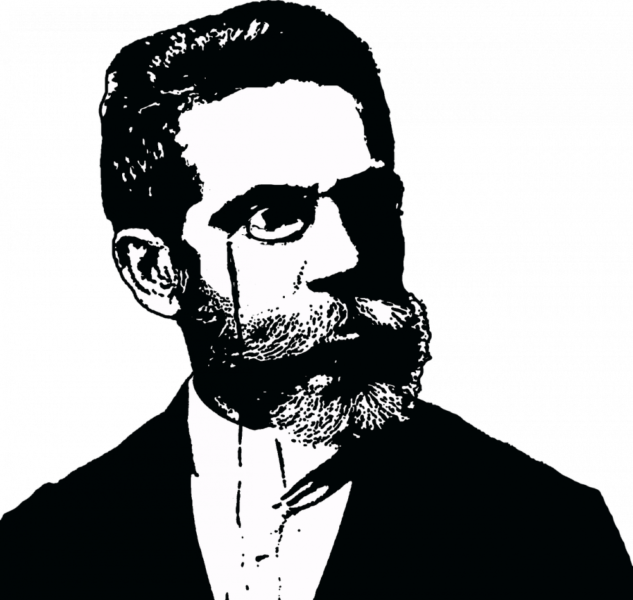1984 by George Orwell: A Timeless Dystopian Masterpiece

[ tag]
[h2 tag] Introduction to 1984 by George Orwell

George Orwell’s 1984 is a dystopian novel published in 1949 that has since become a literary classic. Set in a future totalitarian society, the novel paints a chilling picture of the dangers of authoritarianism and the manipulation of truth. It explores themes such as government surveillance, psychological manipulation, and the loss of individual freedom. Today, it continues to resonate with readers worldwide and serves as a cautionary tale for societies grappling with issues of power and control.
[h2 tag] Historical Evolution of 1984 by George Orwell
1984 was written by George Orwell, the pen name of Eric Arthur Blair, a British writer known for his sharp political criticism and astute observations of society. Orwell drew inspiration from his own experiences, living through the rise of totalitarian regimes such as Nazi Germany and the Soviet Union. These influences, combined with his deep concern for the erosion of individual liberties, shaped the themes and narrative of 1984.
When the novel was first published, it received mixed reviews. Some praised Orwell’s prescience and his ability to capture the essence of authoritarianism, while others found the story too bleak and dystopian. Over time, however, 1984 gained recognition as a literary masterpiece and an important commentary on the dangers of unchecked government power.
[h2 tag] Key Themes and Analysis
1984 delves into several key themes that have resonated with readers throughout the years. The novel explores the effects of government surveillance, with the omnipresent Big Brother watching citizens’ every move, instilling fear and controlling their actions. The manipulation of truth, known as “newspeak,” is another critical theme. This concept reveals the power of language and the control it can exert over the masses.
Orwell’s portrayal of psychological manipulation is also a significant aspect of the novel. Through the character of Winston Smith, readers witness the relentless indoctrination and brainwashing techniques employed by the party to strip individuals of independent thought and autonomy.
Additionally, 1984 serves as a profound critique of totalitarianism, highlighting the inherent dangers of authoritarian regimes. Orwell’s depiction of a society devoid of privacy, individuality, and free will serves as a warning against the erosion of democracy and the importance of protecting civil liberties.
[h2 tag] Impact and Relevance Today
Despite being written over seven decades ago, 1984 remains highly relevant today. Its exploration of government surveillance, the manipulation of truth, and the suppression of dissenting voices raises pertinent questions about the role of technology and the potential abuse of power in modern societies.
The term “Big Brother” has become synonymous with invasive surveillance, and phrases such as “doublethink” and “thoughtcrime” have entered the cultural lexicon. The novel’s concepts continue to resonate in the era of mass surveillance, fake news, and social media manipulation, reminding us of the need to remain vigilant about threats to personal freedom.
[h2 tag] Conclusion
1984 by George Orwell stands as a timeless dystopian masterpiece, relevant to readers of all generations. Its astute portrayal of a society oppressed by authoritarian rule serves as a warning against the dangers of unchecked power and the erosion of individual freedoms. As we navigate an increasingly complex and interconnected world, Orwell’s chilling vision reminds us of the importance of protecting our privacy and preserving truth in the face of manipulative forces.
In an age where surveillance and control are ever-present, 1984 remains a striking reminder of the consequences of allowing governments to encroach upon our most basic human rights. This powerful novel acts as a call to action, urging us to remain alert and actively strive for a society that upholds the values of freedom, truth, and individuality.
[word count: 549]
FAQ
How has 1984 by George Orwell evolved over time?
What is 1984 by George Orwell about?
Why is 1984 by George Orwell still relevant today?
Flere Nyheder
Erhvervsfotograf: En kunst i forretningslivet
[ tag] [h2 tag] Introduction to 1984 by George Orwell George Orwell’s 1984 is a dystopian novel published in 1949 that has since become a literary classic. Set in a future totalitarian society, the novel paints a chilling picture of the dangers...
04 juni 2025
Den moderne fotograf: Færdigheder, teknik og kreativitet
[ tag] [h2 tag] Introduction to 1984 by George Orwell George Orwell’s 1984 is a dystopian novel published in 1949 that has since become a literary classic. Set in a future totalitarian society, the novel paints a chilling picture of the dangers...
12 november 2024
Galleri Nordjylland: Et kunstnerisk epicenter i det danske landskab
[ tag] [h2 tag] Introduction to 1984 by George Orwell George Orwell’s 1984 is a dystopian novel published in 1949 that has since become a literary classic. Set in a future totalitarian society, the novel paints a chilling picture of the dangers...
10 juni 2024











